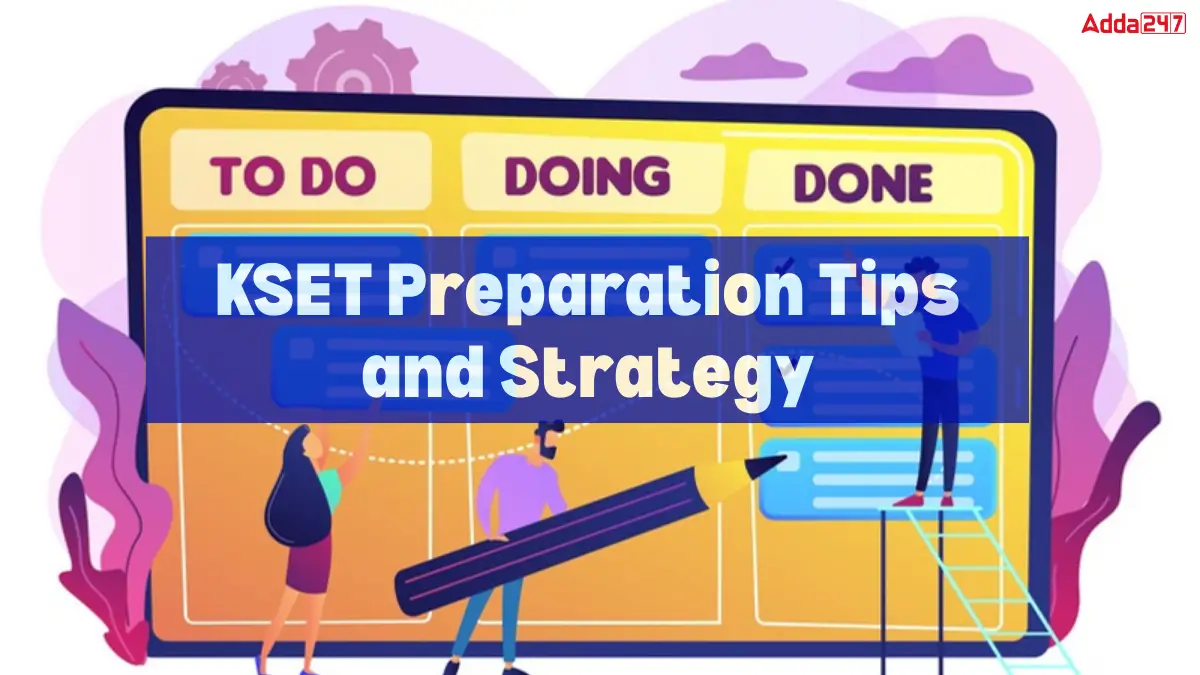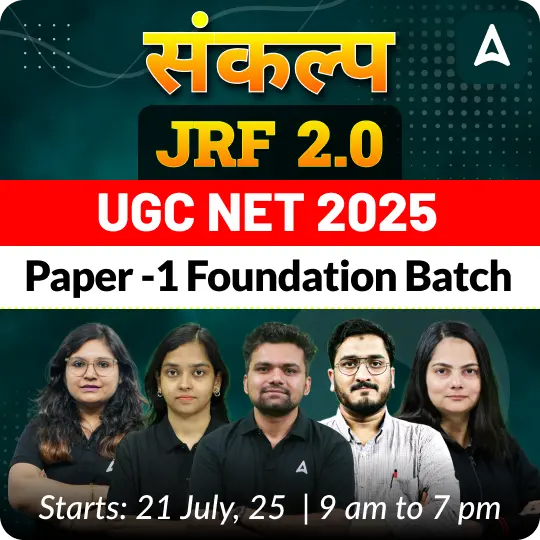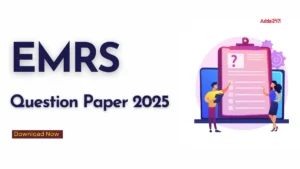Table of Contents
For anyone aspiring to be a lecturer or assistant professor in Karnataka, the Karnataka State Eligibility Test (KSET) is your key to success. This exam opens doors to teaching opportunities across colleges and universities in the state. Excelling in KSET 2025 requires a smart, well-structured preparation plan. With focused strategies and section-wise tips, you can confidently tackle every part of the exam and maximize your chances of success.
KSET Preparation Tips 2025
Preparing comprehensively for the KSET Exam involves focusing on both Paper I (General Paper) and Paper II (Subject-specific Paper). Here are some essential preparation tips:
- Understand the Syllabus: Familiarize yourself with the latest KSET syllabus. It helps in identifying important topics and allocating study time effectively.
- Create a Study Plan: Develop a structured study plan based on the syllabus. Allocate specific time slots for each subject or topic to ensure comprehensive coverage.
- Refer to Authentic Resources: Use official KSET preparation materials, previous years’ question papers, and recommended textbooks to gain in-depth knowledge of the subjects.
- Time Management: Practice time management during preparation and mock tests to improve speed and accuracy.
- Take Mock Tests: Regularly take mock tests to assess your preparation level, identify weaknesses, and improve performance under exam conditions.
- Revision Strategy: Plan periodic revisions to reinforce learning and retain information effectively.
- Stay Updated: Keep yourself updated with current affairs, especially those relevant to Karnataka, as they are often part of the General Paper section.
Karnataka SET Preparation Tips for Paper I Subject-wise
Paper I of the Karnataka State Eligibility Test (KSET) is designed to evaluate a candidate’s teaching and research aptitude, reasoning abilities, and general awareness about key topics relevant to education. Here’s a detailed guide to preparing for each section of Paper I:
- Teaching Aptitude: Teaching Aptitude assesses your understanding of educational theories, teaching methodologies, and classroom management techniques. Focus on learning key educational theories, such as those by Piaget and Vygotsky, and explore various teaching methods. Additionally, study classroom management strategies to effectively handle diverse learning environments.
- Research Aptitude: Research Aptitude evaluates your knowledge of research methodologies, techniques, and ethics. Understand the different research methods (qualitative and quantitative), sampling techniques, and data analysis tools. Familiarize yourself with research ethics, including issues like plagiarism and data integrity, to answer questions confidently.
- Reading Comprehension: Reading Comprehension tests your ability to understand and analyze written passages. Practice reading diverse texts to improve your comprehension skills, focusing on identifying key ideas, supporting details, and the author’s intent. This will help you quickly and accurately answer related questions.
- Communication: The Communication section examines your understanding of the communication process, barriers to effective communication, and strategies to overcome them. Study various communication models and principles of effective communication, such as clarity and coherence, to excel in this section.
- Reasoning (Including Maths): This section tests your quantitative reasoning skills, including basic arithmetic, algebra, and geometry. Practice solving numerical problems and logical sequences to improve your speed and accuracy. Mastering these fundamental concepts is essential for performing well in the exam.
- Logical Reasoning: Logical Reasoning assesses your ability to think logically and solve problems. Focus on practicing diverse reasoning questions, such as syllogisms, analogies, and logical deductions. Developing strong analytical skills will help you tackle this section with confidence.
- Data Interpretation: Data Interpretation involves analyzing and drawing conclusions from data presented in various formats, such as graphs and tables. Practice interpreting data accurately and efficiently, and strengthen your skills in percentage and ratio calculations, which are commonly tested.
- Information & Communication Technology (ICT): This section tests your knowledge of basic ICT concepts, including computer fundamentals, internet technologies, and their application in education. Study the role of ICT in teaching and learning, and understand key topics like cybersecurity and networking basics.
- People & Environment: People & Environment covers topics related to environmental issues and sustainable development. Focus on understanding key environmental challenges, such as climate change and biodiversity loss, as well as policies and initiatives aimed at promoting sustainability.
- Higher Education System: Governance, Polity & Administration: This section evaluates your knowledge of India’s higher education system, including governance structures, key policies, and administrative bodies like UGC and AICTE. Familiarize yourself with the historical development of higher education in India and recent reforms like the National Education Policy (NEP) 2020.
KSET Preparation Tips for Paper II
Paper II is subject-specific and delves deeper into your chosen discipline. Here’s how to approach it:
- Detailed Study of Syllabus: The Paper II syllabus is extensive, covering both fundamental and advanced topics. Start by breaking down the syllabus into manageable chunks. Create a checklist of topics and prioritize them based on their relevance and difficulty level. This approach will ensure that you cover all essential areas without feeling overwhelmed.
- In-depth Understanding: Unlike Paper I, where general knowledge and aptitude are tested, Paper II demands a deep understanding of your subject. Go beyond superficial reading; focus on grasping the core concepts, theories, and their applications. Use a variety of sources, including textbooks, scholarly articles, and online lectures, to enhance your understanding.
- Problem-solving Skills: For subjects that involve numerical problems, case studies, or practical applications, regular practice is important. Solve as many problems as possible, focusing on accuracy and method. Understanding the step-by-step approach to solving complex problems will give you an edge in the exam.
- Practice Previous Years’ Papers: Analyzing KSET previous years question papers can provide valuable insights into the exam pattern and frequently asked questions. It also helps you gauge the difficulty level and understand the examiner’s expectations. Make it a point to solve these papers under timed conditions to improve your time management skills.
Karanataka State Eligibility Test Tips & Strategy 2025
Developing a strategic approach is vital to performing well in the KSET Exam:
- Early Start: Begin preparation early to have ample time for revision and practice.
- Focus on Weak Areas: Identify and work on your weaker areas through targeted study sessions.
- Balance Speed and Accuracy: During the exam, maintain a balance between speed and accuracy while attempting questions.
- Mock Tests: Take multiple mock tests to simulate exam conditions and improve time management.
- Stay Calm and Confident: Maintain a positive mindset, manage stress effectively, and stay confident throughout the exam.




 EMRS Question Paper 2025 Released, Downl...
EMRS Question Paper 2025 Released, Downl...
 How Can I Crack UGC NET Political Scienc...
How Can I Crack UGC NET Political Scienc...
 REET Mains परीक्षा के ...
REET Mains परीक्षा के ...












